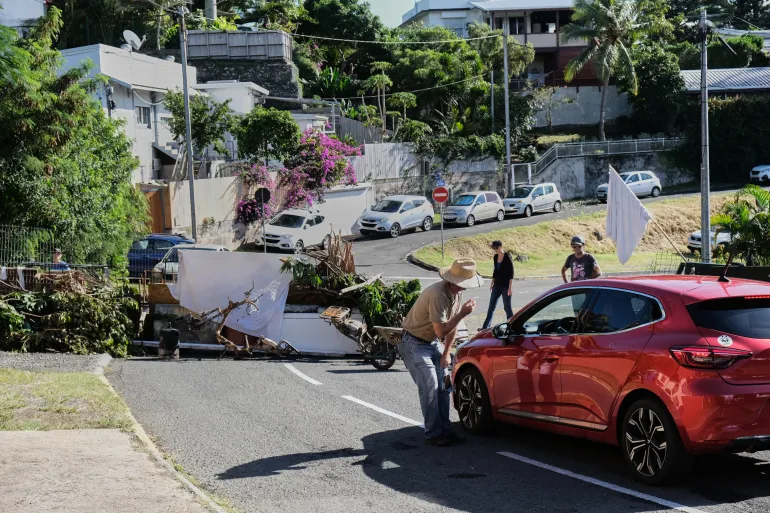In the wake of escalating violence over proposed changes to provincial voting rules, authorities in New Caledonia are cautiously optimistic as tensions appear to ease, though sporadic incidents still persist.
The French Pacific territory, rocked by unrest since Monday night, has witnessed a significant influx of security reinforcements dispatched from Paris following the declaration of a state of emergency.
The High Commissioner of New Caledonia, representing the French state, reported a relative calmness in the provincial capital of Noumea on Friday, marking a notable shift in the situation.
However, the tranquility remains fragile, underscored by incidents such as fires at a school and two businesses overnight, indicative of lingering discontent.
At the heart of the turmoil lies deep-seated anger over French proposals to extend voting rights to long-term residents of New Caledonia, a move perceived by the Indigenous Kanak population as a threat to their political influence.
This tension reached a boiling point with the passage of the voting expansion plan by the National Assembly in Paris, exacerbating fears of diluting Kanak’s representation.
The unrest has prompted a substantial deployment of security personnel, with an additional 1,000 reinforcements expected to bolster the existing 1,700-strong contingent.
Authorities have pledged to pursue stringent measures against perpetrators, advocating for severe penalties for rioters and looters.
Five individuals suspected of orchestrating the violence have already been placed under house arrest.
Tragically, the violence has exacted a heavy toll, claiming at least five lives, including a second police officer who was killed on Thursday.
Among the casualties are three civilians, all belonging to the Kanak community, while hundreds have suffered injuries in the clashes. Such bloodshed marks the most severe outbreak of violence in the territory in over three decades, underscoring the gravity of the situation.
The recent turmoil follows a series of failed referendums on independence, emblematic of New Caledonia’s complex political landscape.
Despite earlier agreements aimed at ensuring stability, including the recent referendums in December 2021, which saw a low turnout amidst the COVID-19 pandemic, tensions persist regarding the territory’s future status.
As New Caledonia navigates through this period of unrest, both local and international attention remains fixed on the region, with stakeholders closely monitoring developments.
The road to reconciliation and stability appears fraught with challenges, requiring concerted efforts from all parties involved to address underlying grievances and forge a path forward.
In the interim, authorities continue to grapple with the aftermath of violence while striving to restore a semblance of normalcy to the embattled territory.
Whether the current lull in hostilities will evolve into a sustainable peace or serve as a temporary reprieve remains to be seen, as New Caledonia stands at a pivotal crossroads in its quest for political stability and social harmony.
This article was created using automation and was thoroughly edited and fact-checked by one of our staff editorial members



